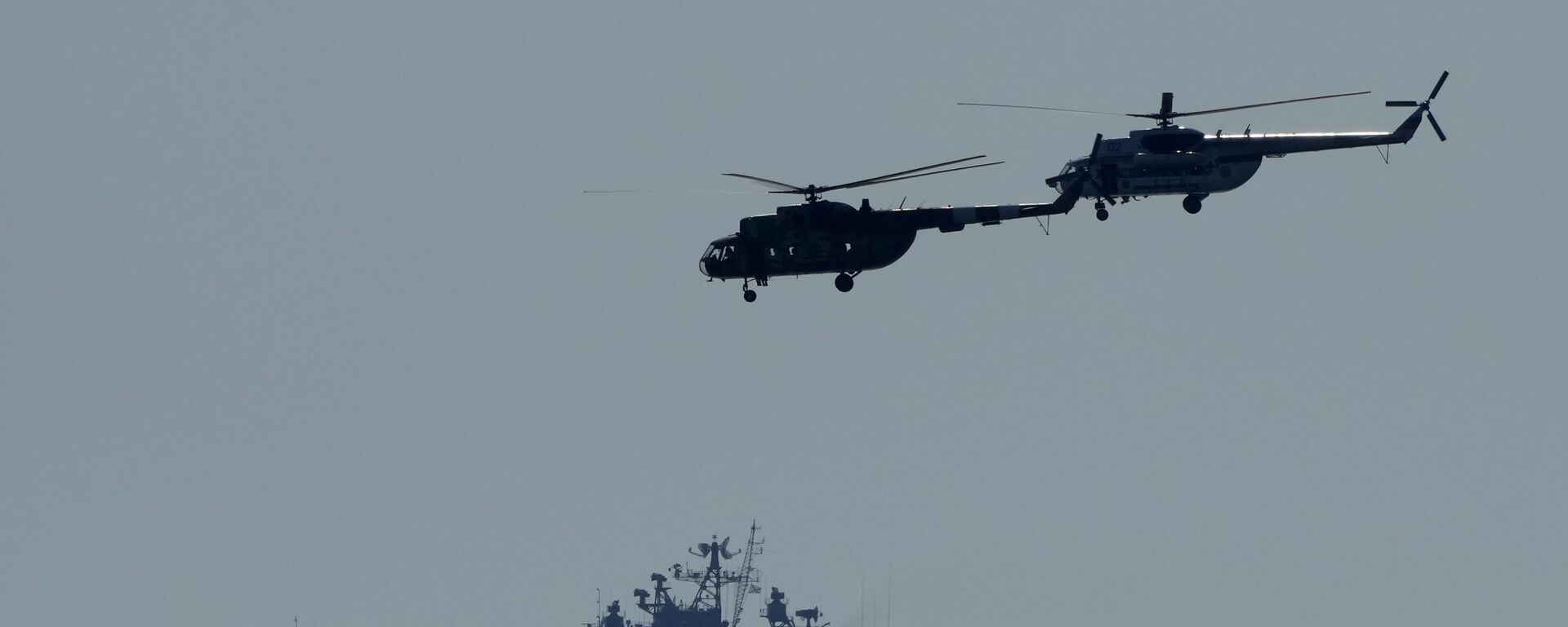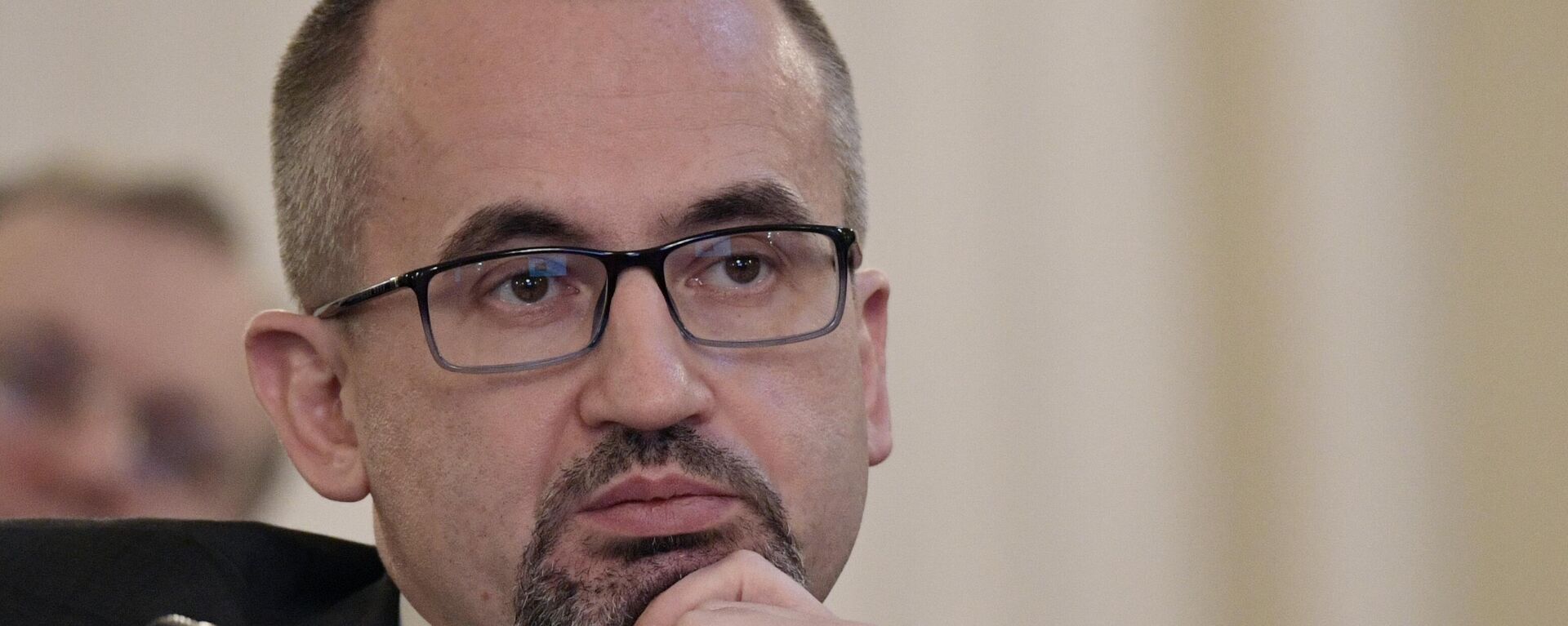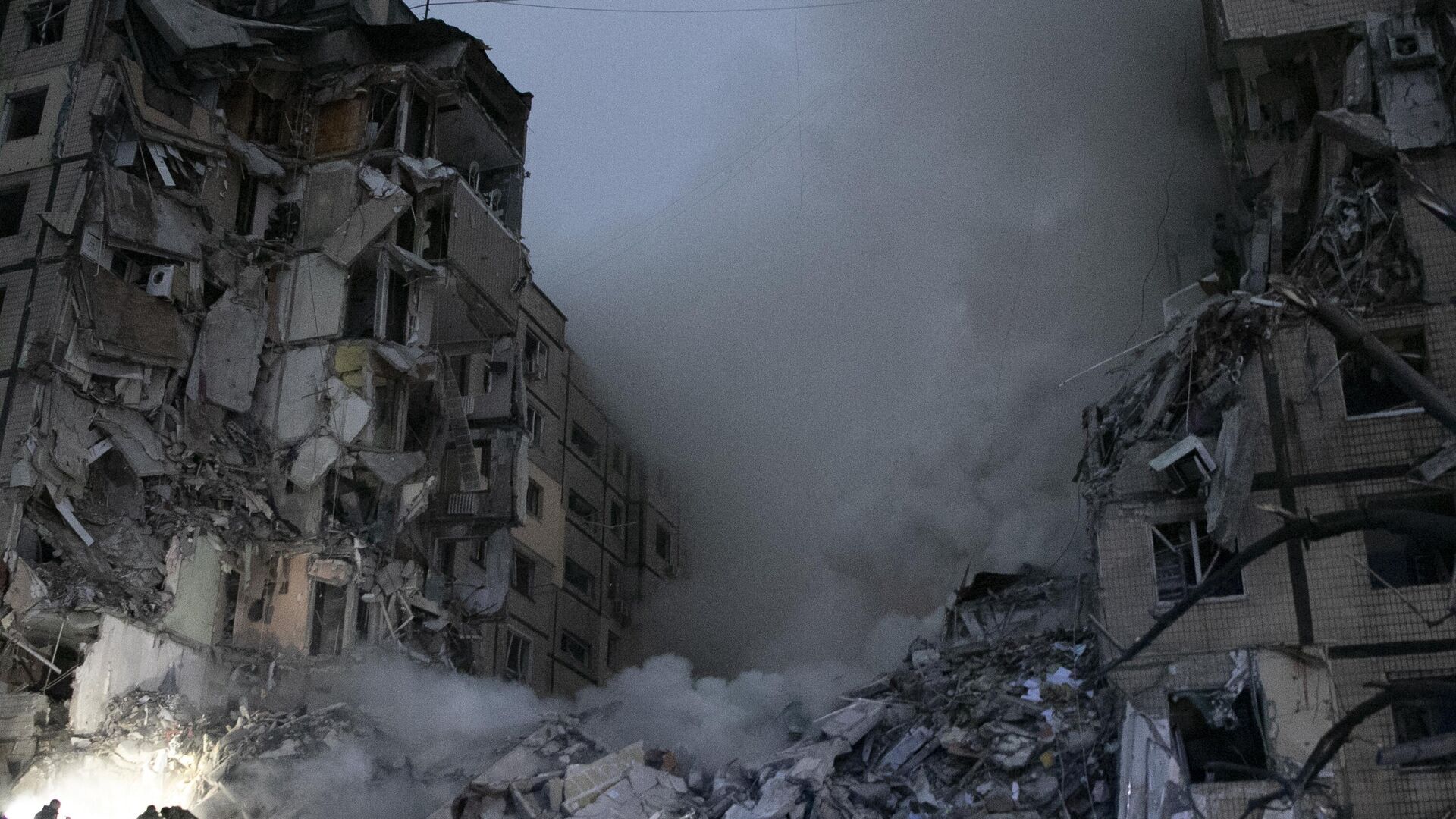https://sputnikglobe.com/20230119/russian-envoy-tells-canada-kiev-violating-laws-of-war-led-to-dnepropetrovsk-tragedy-1106476029.html
Russian Envoy Tells Canada Kiev Violating Laws of War Led to Dnepropetrovsk Tragedy
Russian Envoy Tells Canada Kiev Violating Laws of War Led to Dnepropetrovsk Tragedy
Sputnik International
Russian Ambassador in Ottawa Oleg Stepanov drew attention during his meeting at the Canadian Foreign Ministry to Kiev’s violation of laws of war on non-deployment of military infrastructure in civilian residential areas, which became the reason of the Dnepropetrovsk tragedy.
2023-01-19T02:31+0000
2023-01-19T02:31+0000
2023-01-19T02:25+0000
world
canada
us
ukraine crisis
oleg stepanov
summons
russia-canada relations
https://cdn1.img.sputnikglobe.com/img/07e7/01/10/1106397067_0:156:3001:1844_1920x0_80_0_0_955ca0ba548b9ec04347fa987babd678.jpg
Earlier in the day, Canadian Minister of Foreign Affairs Melanie Joly told reporters that Canadian officials summoned the Russian ambassador to condemn the recent incident in Dnepropetrovsk. She also said Ottawa condemned Russian Foreign Minister Sergey Lavrov's suggestion that the United States is creating a coalition of European countries to solve the so-called "Russian question" in the same way that Adolf Hitler sought to eradicate Jews. “For my part, of course, I gave a detailed commentary on this story and drew attention to the fact that an adviser to the Ukrainian presidential administration, already a former one, said that this tragic case was simply the result of the work of Ukrainian air defense,” Stepanov said on Wednesday. Stepanov said he was surprised by Joly's statement, which he saw after the meeting. “This invitation to the Foreign Ministry was for the Canadian side to make a demarche to me about the tragedy in Dnepropetrovsk. It was only about this,” he shared. “You can imagine that everything followed the predictable lines of general Western propaganda. The Canadians accuse us of all mortal sins, saying that the Russian leadership allegedly gave the order to directly hit a residential facility, and that this emphasizes all the cruelty, injustice and illegality of our military operation and we will all be held accountable for this later.” The Canadians, he added, accuse Russia of intentionally hitting civilian and energy infrastructure and thereby committing illegal actions. “I reminded them again that the energy infrastructure primarily feeds the capabilities of the Ukrainian armed forces, and since a special military operation is underway, everything that supports the enemy forces is a legitimate military target,” Stepanov said. When asked how Canada wants to hold Russia responsible, Stepanov noted: “In principle, the interlocutor did not tell me anything new from what representatives of Trudeau's cabinet had not previously stated openly.” “In fact, they want to isolate top-level political, state figures in Russia, then try to persecute them using some pseudo-international mechanisms,” he said. Unfortunately, he added, Canada, despite its seemingly professional international legal school, actively supports this idea. “And this is what they regularly threaten us with,” Stepanov went on to say. “We accept these threats with a smile and tell Canadians about this, that, guys, these ideas of yours are far from reality.” Stepanov also said he pointed out to his interlocutor today that, taking root in such a not just pro-Ukrainian, but hyper-anti-Russian line, Canada just raises the degree of the current confrontation and leaves no room for further diplomatic work. “We know very well that our military operation will go on until it reaches its stated goals... but every conflict, after achieving its goals, requires some kind of formalization of the results,” he said. Ukrainian presidential adviser Oleksiy Arestovych on Tuesday announced his resignation after recently suggesting that the cause of the collapse of a residential building in the city of Dnepropetrovsk was Kiev's interceptor missile shooting down a Russian missile. On Saturday, a missile hit a residential building in the Ukrainian city of Dnepropetrovsk, killing at least 40 people. Shortly after the incident, Arestovych said the building was damaged by debris from a Russian missile that was shot down by Ukrainian air defense. Kiev said later that the building was hit by a Russian missile that air defenses were incapable of intercepting. Arestovych's comment caused a public outcry, and Ukrainian lawmaker Oleksiy Goncharenko announced the start of a petition demanding Arestovych's resignation. The presidential adviser later retracted his Dnepropetrovsk missile remarks. On Monday, commenting on the Dnepropetrovsk incident, Kremlin spokesman Dmitry Peskov said that the Russian armed forces do not strike residential buildings or civilian infrastructure facilities.
https://sputnikglobe.com/20230119/report-us-considering-providing-ukraine-with-weapons-to-strike-crimea-1106475695.html
https://sputnikglobe.com/20230118/canadas-joly-ottawa-summoned-russian-envoy-to-condemn-dnepr-attacks-1106473321.html
canada
Sputnik International
feedback@sputniknews.com
+74956456601
MIA „Rossiya Segodnya“
2023
Sputnik International
feedback@sputniknews.com
+74956456601
MIA „Rossiya Segodnya“
News
en_EN
Sputnik International
feedback@sputniknews.com
+74956456601
MIA „Rossiya Segodnya“
Sputnik International
feedback@sputniknews.com
+74956456601
MIA „Rossiya Segodnya“
russian envoy, canada, envoy, dnepropetrovsk, oleg stepanov
russian envoy, canada, envoy, dnepropetrovsk, oleg stepanov
Russian Envoy Tells Canada Kiev Violating Laws of War Led to Dnepropetrovsk Tragedy
WASHINGTON (Sputnik) - Russian Ambassador in Ottawa Oleg Stepanov drew attention during his meeting at the Canadian Foreign Ministry to Kiev’s violation of laws of war on non-deployment of military infrastructure in civilian residential areas, which became the reason of the Dnepropetrovsk tragedy.
Earlier in the day, Canadian Minister of Foreign Affairs Melanie Joly told reporters that Canadian officials summoned the Russian ambassador to condemn the recent incident in Dnepropetrovsk. She also said Ottawa condemned Russian Foreign Minister Sergey Lavrov's suggestion that the United States is creating a coalition of European countries to solve the so-called "Russian question" in the same way that Adolf Hitler sought to eradicate Jews.
“For my part, of course, I gave a detailed commentary on this story and drew attention to the fact that an adviser to the Ukrainian presidential administration, already a former one, said that this tragic case was simply the result of the work of Ukrainian air defense,” Stepanov said on Wednesday.
“I drew attention to the fact that, despite the numerous testimonies of journalists, observers, experts about Ukraine’s violation of the laws of war on non-deployment of military infrastructure in civilian residential areas, the Zelensky regime continues to do this and, in fact, the tragedy in Dnepropetrovsk is simply the result of the criminal and thoughtless actions of this regime.”
Stepanov said he was surprised by Joly's statement, which he saw after the meeting.
“This invitation to the Foreign Ministry was for the Canadian side to make a demarche to me about the tragedy in Dnepropetrovsk. It was only about this,” he shared.
“You can imagine that everything followed the predictable lines of general Western propaganda. The Canadians accuse us of all mortal sins, saying that the Russian leadership allegedly gave the order to directly hit a residential facility, and that this emphasizes all the cruelty, injustice and illegality of our military operation and we will all be held accountable for this later.”
The Canadians, he added, accuse Russia of intentionally hitting civilian and energy infrastructure and thereby committing illegal actions.

19 January 2023, 01:52 GMT
“I reminded them again that the energy infrastructure primarily feeds the capabilities of the Ukrainian armed forces, and since a special military operation is underway, everything that supports the enemy forces is a legitimate military target,” Stepanov said.
When asked how Canada wants to hold Russia responsible, Stepanov noted: “In principle, the interlocutor did not tell me anything new from what representatives of Trudeau's cabinet had not previously stated openly.”
“In fact, they want to isolate top-level political, state figures in Russia, then try to persecute them using some pseudo-international mechanisms,” he said.
“The theme of the International Criminal Court is often heard here, but this is ridiculous, it is clear that it does not work. As you heard days earlier, the Western countries want to create a kind of pseudo-tribunal. At least some radical countries in the West express such ideas - let's create a tribunal and judge Russia.”
Unfortunately, he added, Canada, despite its seemingly professional international legal school, actively supports this idea.
“And this is what they regularly threaten us with,” Stepanov went on to say. “We accept these threats with a smile and tell Canadians about this, that, guys, these ideas of yours are far from reality.”
Stepanov also said he pointed out to his interlocutor today that, taking root in such a not just pro-Ukrainian, but hyper-anti-Russian line, Canada just raises the degree of the current confrontation and leaves no room for further diplomatic work.

18 January 2023, 21:38 GMT
“We know very well that our military operation will go on until it reaches its stated goals... but every conflict, after achieving its goals, requires some kind of formalization of the results,” he said.
“It cannot be self-reproducing and go on for hundreds of years. There will be some ending. With their confrontational policies, the countries, it seems to me, worsen any opportunities for achieving diplomatic results following the completion of our military operation, when we will have completed our tasks.”
Ukrainian presidential adviser Oleksiy Arestovych on Tuesday announced his resignation after recently suggesting that the cause of the collapse of a residential building in the city of Dnepropetrovsk was Kiev's interceptor missile shooting down a Russian missile.
On Saturday, a missile hit a residential building in the Ukrainian city of Dnepropetrovsk, killing at least 40 people. Shortly after the incident, Arestovych said the building was damaged by debris from a Russian missile that was shot down by Ukrainian air defense. Kiev said later that the building was hit by a Russian missile that air defenses were incapable of intercepting. Arestovych's comment caused a public outcry, and Ukrainian lawmaker Oleksiy Goncharenko announced the start of a petition demanding Arestovych's resignation. The presidential adviser later retracted his Dnepropetrovsk missile remarks.
On Monday, commenting on the Dnepropetrovsk incident, Kremlin spokesman Dmitry Peskov said that the Russian armed forces do not strike residential buildings or civilian infrastructure facilities.




